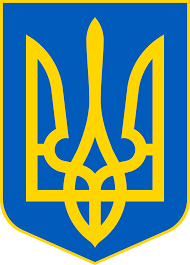
Crimea Platform
Today marks the launch of the Crimea Platform, an initiative of Ukrainian President Volodymyr Zelensky and the Ukrainian Ministry of Foreign Affairs to highlight Russia’s continuing illegal annexation of Crimea, and to demonstrate that the world has not forgotten about it. The Platform itself will not, of course, do anything much to change Russian thinking; it is aimed rather at Western audiences and designed to give Ukraine’s friends an opportunity to register their support.
In this regard, the news is rather mixed. Not surprisingly, the strongest representation at the Platform comes from countries that have experienced Russian occupation themselves: Poland, Hungary, Slovakia, Slovenia, Moldova, and Finland. A number of EU countries have agreed to send foreign ministers, but there are disturbing reports coming out of Angela Merkel’s recent meeting with Vladimir Putin that she has agreed to downgrade her country’s representation. Other big EU states may follow suit.
___STEADY_PAYWALL___
The United States will be represented by Jennifer Granholm, the Secretary of Energy. Sending her, rather than the Secretary of State or the Vice President, is in line with the Biden Administration’s disappointing policy thus far toward Ukraine. Biden’s most notable initiative, following his summit with Putin in June, was to withdraw U.S. opposition to the Nord Stream 2 pipeline project. The latter will dramatically increase European dependence on Russian natural gas, allowing Gazprom to circumvent Ukraine in shipping gas to Europe and depriving the latter country of the transit fees it has up to now earned. Nord Stream 2 has been opposed by many other European countries, by the Trump Administration, by the German Green Party, and by a bipartisan coalition of members of the U.S. Congress. The best you can say for the Biden decision was that it was intended to repair U.S.-German relations rather than being a sop to Putin. But it has sent a disturbing signal to everyone in Europe of America’s willingness to accommodate Russian power.
I recently wrote in the Economist that the withdrawal from Afghanistan does not in itself necessarily signal a broader American withdrawal from the world as a whole. In defense of his flawed exit out of the country, Biden suggested that Afghanistan has become a distraction from the larger geopolitical struggle with Russia and China. He better be serious about this, since Putin is testing his resolve as we speak.

Since 2014, Ukraine has become the frontline state in the global struggle between liberal democracy and kleptocratic authoritarianism. Ukraine, like Georgia and Moldova, has been a recent victim of Russian revanchism and territorial aggression. Ukraine is of particular importance to Putin, since a successful transition to liberal democracy there will undercut his narrative that democracy is somehow incompatible with the region’s culture. Putin recently published a long article reiterating his view that there is no such thing as an independent Ukrainian nation, which is a step in legitimating not just the occupation of Crimea and Donbas, but the eventual absorption of the whole of Ukraine into a new Russian empire. Ensuring that Ukraine is a success as a democracy and supporting its international position should therefore be a priority not just for the United States, but for every democracy around the world.
I am speaking at the Crimea Platform opening and have put a lot of effort into helping Ukrainian democracy over the past few years. From our perch at Stanford, there is not much we can do to influence the geopolitical struggle or provide short-term political advice. What my Center, the Center on Democracy, Development and the Rule of Law, has done instead is to launch a series of programs like the Ukrainian Emerging Leaders Program or the Leadership Academy for Development (in addition to our longstanding Draper Hills Summer Fellows Program) to give mid-career Ukrainians some of the skills needed to become effective reformers. Ukraine will succeed in the long term only when a new rising generation of leaders comes into its own. And to get there, it has to win support from friends and survive the geopolitical challenges from its neighbor to the north.
American Purpose newsletters
Sign up to get our essays and updates—you pick which ones—right in your inbox.
Subscribe






